15 F. "high" in the Twin Cities Monday.
40 F. average high on November 17.
46 F. high on November 17, 2013.
November 17, 1994:
58 to 69 mph wind gusts resulted in isolated damage to structures
across south central and southeastern Minnesota. Some of the counties
included were Blue Earth, Faribault, Freeborn, Goodhue, Le Sueur,
Nicollet, Rice, Steele, and Waseca.
November 17, 1979: Heat wave continues in Southwest Minnesota. Temperature hits 70 degrees at Browns Valley.
No Problem
Do
you think settlers at Fort Snelling in 1830 complained about cold
weather? Yep. Did those hardy farmers, trappers and timber barons
threaten to move to Florida after every cold front? Probably not.
Dear God, grant me a stoic constitution. Help me to accept the things I cannot change. Even big things, like Canada.
This
is now the longest stretch of sub-freezing weather I can remember going
back to the early 80s. Observe the no-exposed-skin rule this morning,
with strong winds whipping up a wind chill of -15F at the bus stop.
Temperatures run 20-25F colder than average into Friday, when
temperatures dip below zero again in the suburbs.
Meteorological
Thanksgiving arrives this weekend as Pacific air returns, with highs
pushing well into the 30s Saturday & Sunday. It may be just mild
enough aloft for a cold rain Sunday, before a major storm, a potential
"bomb", spins up over the Great Lakes, yanking enough cold air south for
a changeover to snow by Monday. It's too early to debate snow amounts,
but at this point nothing would surprise me. After that: relatively
quiet, storm-free weather for Thanksgiving travel from Tuesday on.
With an autumn like this who needs winter?
Most Sub-Freezing November Days in a Row Since 1996. I suspect we'll go 13 days in a row below freezing - which is impressive for November. Here's an excerpt of a post from the
Minnesota DNR: "
A strong January-like area of high pressure settled in across a large part of the central United States in the wake of the November 10, 2014
storm. Twin Cities began a streak of "at or below 32 degrees" for a
maximum temperature on Monday, November 10 with a high temperature of 31
degrees. The longest stretch of 32 degrees or colder is a cold spell
that began on November 16, 1880 and lasted for the rest of November for a
streak of 15 days. 11 days has also been reached in 1911, 1985 and
1996. In order to break the all-time November consecutive maximum
temperatures of 32 degrees or colder it would have to stay at or below
freezing through November 25..."
Weekend Warming Trend.
The last time temperatures rose above 32F in the Twin Cities was
November 9, with a high of 39F. Since then we've been enjoying a
premature taste of January, but models are pretty unanimous pulling
milder, Pacific air into Minnesota by the weekend with highs well into
the 30s to near 40F. Possibly mild enough aloft for a little rain Sunday
changing to wet snow Monday as an impressive storm winds up over the
Great Lakes. Graphic: Weatherspark.
Harsh Winter Outlook Made A Bit More Dire By Siberia Snow.
Could the rate and extent of autumn snows across Siberia be a
(reliable) indicator for the severity of winters from the USA to Europe?
At least one researcher in Massachusetts believes the answer is yes.
Here's a clip from
Bloomberg: "...
About
14.1 million square kilometers of snow blanketed Siberia at the end of
October, the second most in records going back to 1967, according to Rutgers University’s Global Snow Lab.
The record was in 1976, which broke a streak of mild winters in the
eastern U.S. In addition, the speed at which snow has covered the region
is the fastest since at least 1998. Taken together they signal greater
chances for frigid air to spill out of the Arctic into more temperate
regions of North America, Europe and Asia, said Judah Cohen, director of seasonal forecasting at Atmospheric and Environmental Research in Lexington, Massachusetts, who developed the theory linking Siberian snow with winter weather...
Image above courtesy of
Rutgers University Global Snow Lab.
Warm Arctic, Cold Continents. A Common Pattern Related to Arctic Sea Ice Melt, Snow Advance and Extreme Winter Weather.
What's happening in the Arctic is having a domino effect farther south,
impacting the configuration of the jet stream, helping to spark more
frequent and extreme weather events. A link to Dr. Judah Cohen's
research is
here.
5 Standard Deviation Event?
This was from Saturday, but I wanted to include this - more energy in
the system is creating some eye-popping anomalies that just can't be
ignored or dismissed. The ridge over northwest Canada and Alaska over
the weekend was a highly unusual and improbable event, helping to create
the conditions necessary to push abnormally cold air into the USA.
Source:
Capital Climate.
Yes, The Weather Is Polar. No, It's Not The Vortex. NPR
corrects some misconceptions about the (alleged) polar vortex, which
has become a catch-all for every significant cold front that sails south
of the Canadian border. No, this is not the Polar Vortex. Here's an
excerpt: "...
The polar vortex is a constant flow of arctic air
circling in the upper atmosphere above the North and South Poles. The
cold is usually corralled up there — but sometimes little bits of the
arctic air escape. "It's just the ordinary sort of weather you expect in
winter," Masters says. "Every now and then you get a big trough of low
pressure. It dips down from the pole and it allows arctic air to seep
southwards..."
Jet stream (GFS) winds obtained using Climate Reanalyzer (http://cci-reanalyzer.org), Climate Change Institute, University of Maine, USA.
This Was The Polar Vortex. NOAA's
climate.gov
takes a look at semantics and the "wobbly" nature of the jet stream
over high latitudes on January 8, 2014. Brings back nice memories huh?
Warmest October on Record.
Greg Laden has an overview of last month's global temperatures; here's an excerpt: "...The data for October has just been added to the
NOAA GISS instrument record,
which runs from 1880 to the present. October was the warmest on record,
just beating out 2005. Overall, it is looking increasingly likely that
2014 will tie or beat the record for warmest year in the instrumental
record, in terms of surface temperature..." (Graphic credit above: Japan
Meteorological Agency).
A Quake Warning, Before It Strikes. Yes, there may (soon) be an app for that too. Here's an excerpt from a story at
The New York Times: "...
The MyShake app, still being tested,
uses smartphone accelerometers and locaters to augment the information
on quakes that comes from 400 seismometers in California, Mr. Allen
said. Eventually, the app could warn users and provide huge amounts of
additional data on earthquakes, he said..."
The Web Is Dying; Apps Are Killing It. We're transitioning from the wild, wild west to more of a walled garden, as described by
The Wall Street Journal - here's the intro: "
The
web - that thin veneer of human-readable design on top of the machine
babble that constitutes the Internet - is dying. And the way it's dying
has farther-reaching implications that almost anything else in
technology today. Think about your mobile phone. All those little
chiclets on your screen are apps, not websites, and they work in ways
that are fundamentally different from the way the Web does..."
21 Ridiculously Hot Products That Every Ridiculously Cold Person Will Want.
A few of these sound pretty good, like a heated steering wheel cover
and heated pants. Listen up Santa. Here's an excerpt from
Huffington Post: "...
And
we want to make this life easier, so we've found 21 heated gadgets that
will help you cruise through all your blistering cold days ahead. Soon
enough, you'll be feeling like you're vacationing on a tropical island,
sun, sand and actual time off work not included. Behold, a day in the
life of someone who is never cold..."
80 Million Bacteria In One Intimate Kiss? Next time settle for a firm handshake. Microbiome has the
technical, gawk-worthy details.
TUESDAY: Numb and number with intervals of sun. Wind chill: -15F early. High: 14
TUESDAY NIGHT: Partly cloudy and unnecessarily cold. Low: 3
WEDNESDAY: Mostly cloudy, few flurries in the air. High: 22
THURSDAY: More sun, trying not to scream. Wake-up: 4. High: 17
FRIDAY: Cold start, promising finish. Wake-up: 1. High: 22
SATURDAY: First thaw in 13 days. Mostly cloudy and milder. Wake-up: 20. High: 36
SUNDAY: A cold rain may develop. Some icing possible. Wake-up: 29. High: 39
MONDAY: Windy with a changeover to snow. Tricky travel? Wake-up: 33. High: 34 (falling during the day)
Climate Stories...
 Where Is Global Warming's Missing Heat?
Where Is Global Warming's Missing Heat? Here's the introduction to a story at
Science Magazine: "
Call
it the climate change conundrum: Even though humans are pumping more
greenhouse gases than ever into the atmosphere, the world’s average air
temperature isn’t rising as quickly as it once did. Some scientists have
proposed that the missing heat is actually being trapped deep
underwater by the Pacific Ocean. But a new modeling study concludes that
the Pacific isn’t acting alone. Instead, it finds, several of the
world’s oceans are playing a role in the warming slowdown by absorbing
their share of the “missing” heat..."
The Ocean Is Now Warmer Than Ever Before In Recorded History.
The vast majority of extra energy and warmth is going into the world's
oceans and we're not exactly sure what that means, longterm. We're
(quite literally) in uncharted waters. Here's an excerpt from
Quartz: "...
Over
the past ten years, great amounts of heat had become locked up in the
the West Pacific, which is a planetary hot spot of sorts. At the same
time, eastward-blowing summer trade winds and other factors kept that
cauldron of balmy water contained—and kept the sea’s surface relatively
cool. As Timmermann describes, starting in Jan. 2014, the North Pacific started heating up unusually quickly..."
Why Is Beijing Downplaying The Supposedly Huge Climate Change Deal? Here's a clip from a story at
Foreign Policy: "...
Alex Wang, a law professor at University of California Los Angeles and expert on China's environment, told Foreign Policy
that "the idea that China should have no limits simply has become an
untenable position." China's emissions, he noted, now "far exceed
everyone else, per capita emissions have surpassed the EU, and historic
emissions will soon catch up with the United States." So why isn't
Beijing celebrating and advertising its new willingness to do something
for the greater good?..."
 Global Warming Could Increase U.S. Lightning Strikes by 50 Percent.
Global Warming Could Increase U.S. Lightning Strikes by 50 Percent. Here's the intro to a
Washington Post story: "
In a study just
out in the prestigious journal Science, a team of researchers deliver
an alarming prediction: A global warming world will see a major increase
in lightning strikes. "Even with the warming of a few degrees Celsius,
you can get some very large climate impacts -- in this case, a 50
percent increase in lightning," says study author David Romps, a climate
researcher at the University of California, Berkeley..."
* 2014 U.S. Lightning Fatalities, To Date. 3 lightning-related deaths in Wisconsin, none in Minnesota. Details from
NOAA.
Can Climate Change Cure Capitalism? Here's an excerpt of a review of Naomi Klein's new book at
The New York Review of Books: "...
Klein
doesn’t just disagree with Carter; she sees this line of thinking as a
big part of the problem. Climate change can’t be solved within the
confines of the status quo, because it’s a product of the status quo.
“Our economic system and our planetary system are now at war,” she
writes. The only hope of avoiding catastrophic warming lies in radical
economic and political change. And this—again, according to Klein—is the
good news. Properly understood, the buildup of CO2 in the atmosphere represents an enormous opportunity—one that, well, changes everything..."
Will GOP Put Climate Science Back on Trial? The Hill
takes a look at the political football that climate science has become
and whether majorities in both houses of Congress may embolden
Republicans to question the science on a national stage: "...
Senate
Republicans appear likely to use their majority status in the next
Congress to attack the argument behind climate change in an attempt to
undercut environmental policies. But some GOP strategists wonder whether
such an offensive might backfire..."
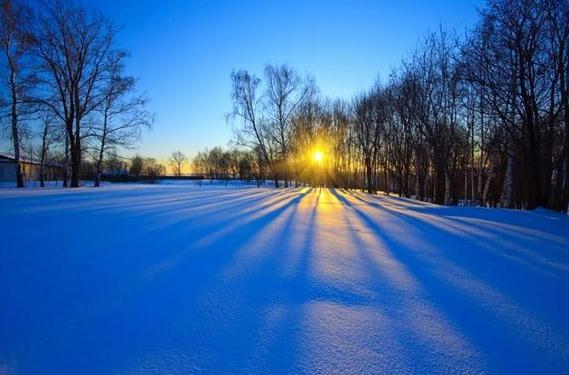
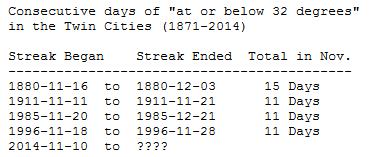
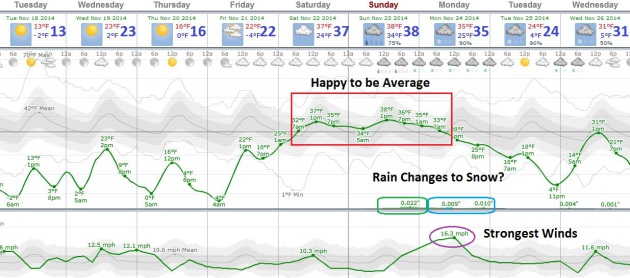
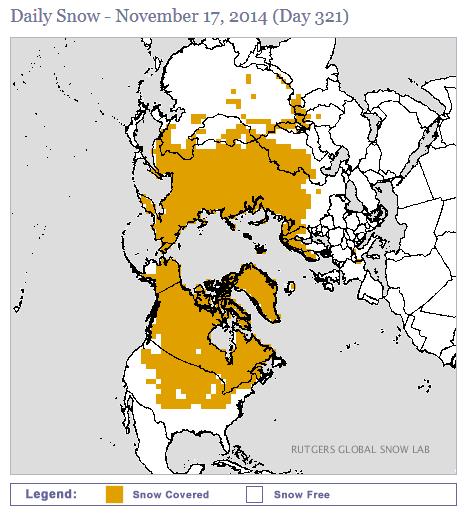

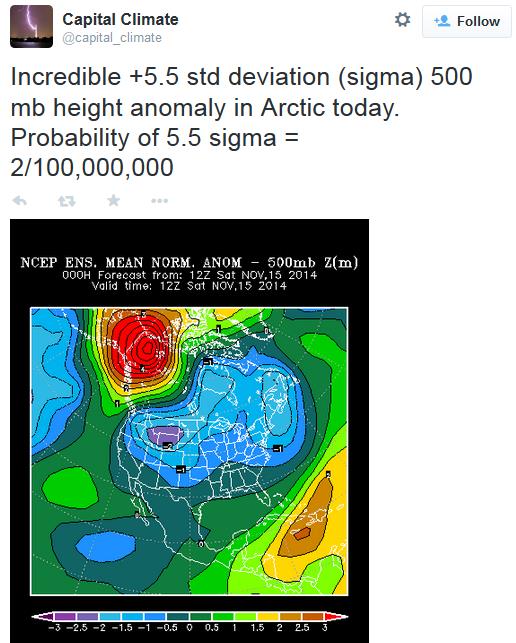
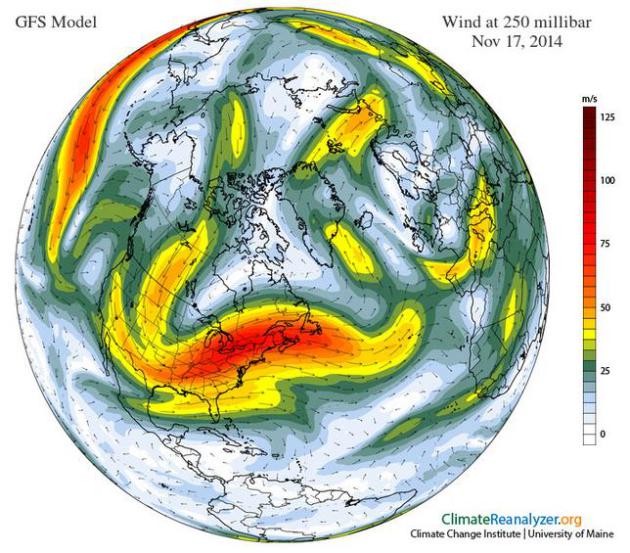
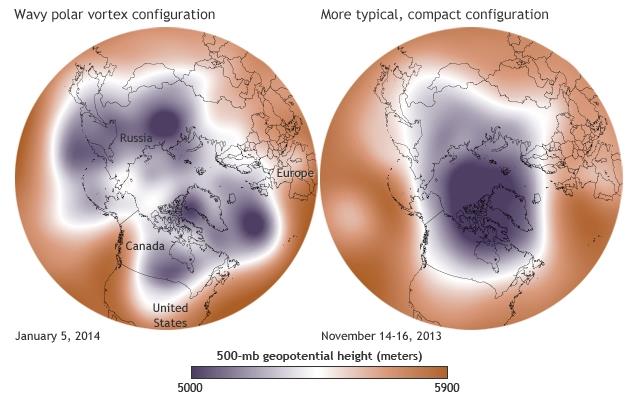
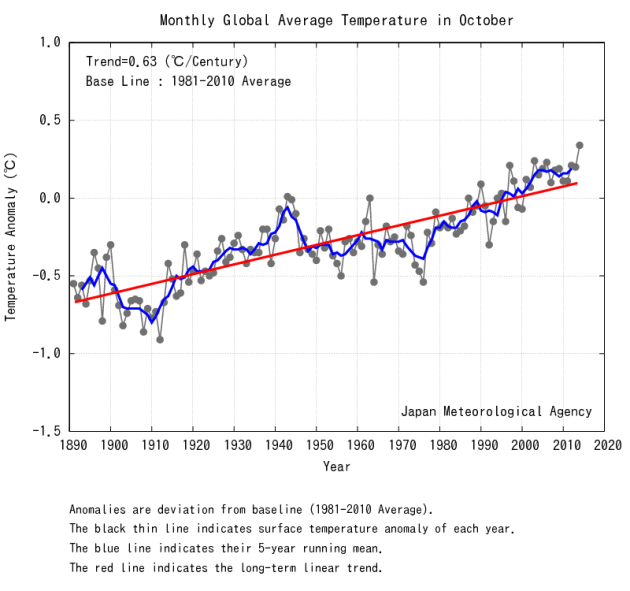
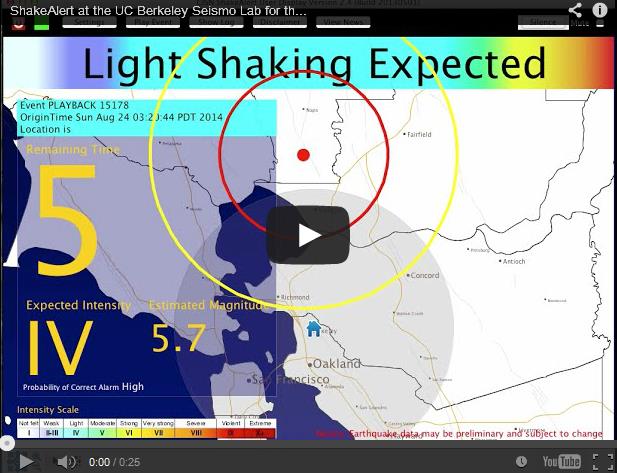
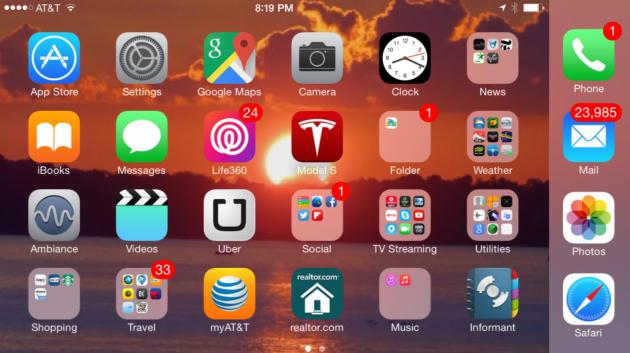


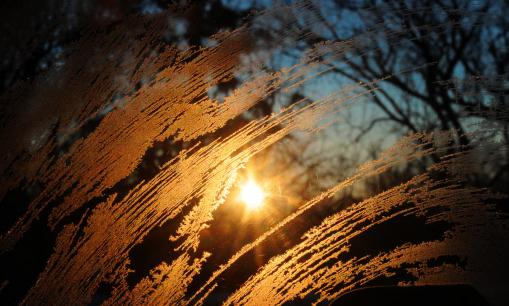
.jpg)
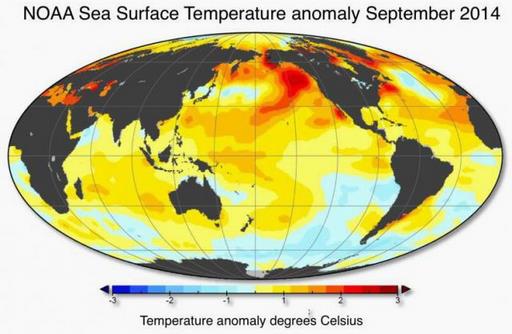
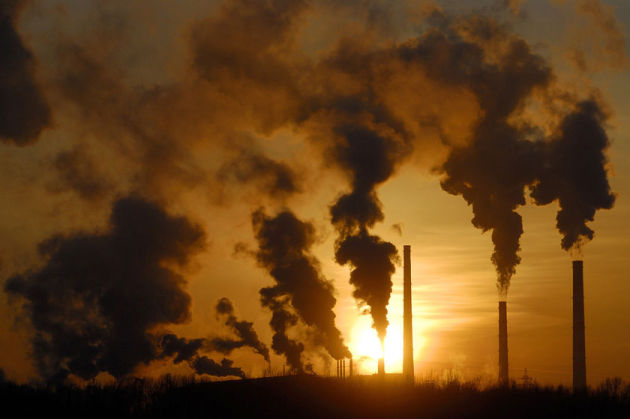
.jpg)
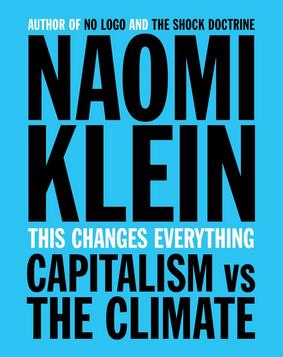
No comments:
Post a Comment